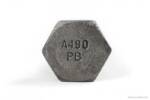Newest FAQs
Yes and No. Traditionally, tie rod assemblies are used with thread each end rods and two clevises. They are designed to have a left-hand threaded end within the assembly in order to draw it tight. All thread rod possesses continuous right-hand thread from one end of the rod to the other. Here are the ways... Read more
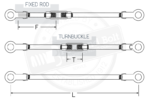
For this FAQ, we are focusing on the 304/316 alloys and their common, default strength conditions. Within both F594 and A194, there are many less common, exotic grades and multiple strength conditions. Exploring all possible permutations of all grades would be unnecessarily complicated. For more details, the actual ASTM standards can be purchased from ASTM,... Read more
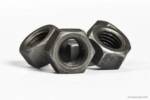
There are three classes of thread fit associated with fasteners: Class 1A/1B, Class 2A/2B, Class 3A/3B. The “A” refers to the externally threaded fastener component, typically the bolt, while “B” refers to the internally threaded fastener component, usually a nut. As the number of thread class increases, the threading tolerances become more precise. Most construction... Read more
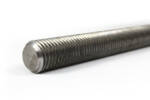
Not all grades of bolts require heat-treating, but those specifications that do are heat-treated after the heads are forged. Heat-treating is performed in a controlled environment using specific quenching and tempering temperatures and durations. The bolts are then tested to ensure the strength of the heat-treated bolts meet the requirements of the given specification. Since... Read more

Portland Bolt does not abide by the practice of shipping quantities of +/- 10%. We feel this policy is ludicrous. We ship exact quantities and the reason is explained below. Shipping +/- 10% is done as a cost-cutting measure by many manufacturers. Since several parts are lost during the manufacturing process (some are used for... Read more
While A194 Grade 4 and A194 Grade 7 nuts are mechanically identical and have the same intended applications, the only difference is the chemical values (aka steel used to manufacture). Grade 4 was created to be a low-cost alternative to Grade 7 by using a lower cost raw material. Unfortunately, this did not work out.... Read more
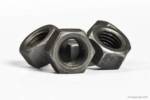
A325 and A193B7 bolts are among the most common, mass-produced bolts available in the marketplace. It is a common misconception that these bolts are interchangeable since they have a lot of similarities in their configurations, and both are considered high-strength bolts. In fact, these bolts have two very different applications and have differences in their... Read more
What is the meaning of UNO? UNO is an acronym that stands for, “Unless Noted Otherwise”. UNO is a blanket statement that covers all specified items related to the callout but leaves exceptions in specific situations. For instance, A325 bolts may be specified in the general notes, but a different fastener specification/grade may be specified... Read more
Portland Bolt measures round bend U-bolts based on the dimensions outlined in the Industrial Fastener Institute Standard IFI-136. The length (L) is measured from end of bolt to inside of the bend, while the width (C) is measured between the legs. Some companies will show the length to the bottom or centerline of the bend... Read more
The ASTM F3125 Grade A490 specification does not allow either hot-dip galvanizing (per ASTM F2329) or mechanical galvanizing (per ASTM B695) due to the risk of hydrogen embrittlement. The only coating currently allowed on A490 bolts is a zinc aluminum coating meeting ASTM F3393, which is itself a combination of three coating standards, F1136, F2833,... Read more
